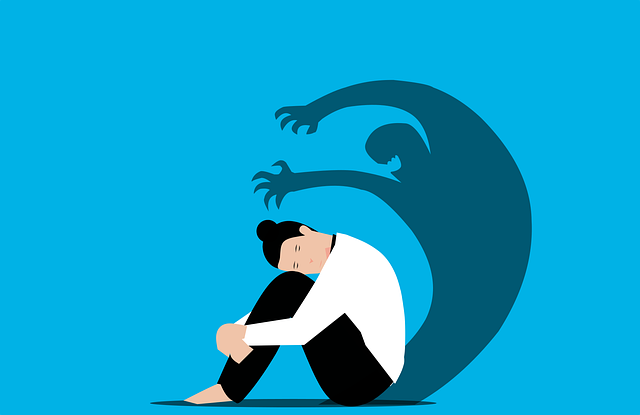Chronic stress, arising from uncontrollable situations like financial troubles or work demands, can lead to anxiety, depression, physical ailments, and relationship issues. Denver's Chronic Illness Therapy offers support through holistic approaches, including tailored therapy sessions, mental health education, CBT, and stress management techniques. This comprehensive strategy addresses physical, emotional, and social well-being, empowering patients to manage stress effectively, build confidence, and enhance their quality of life. Healthy lifestyle practices, such as exercise, mindfulness, quality sleep, proper nutrition, and personal development, further reinforce these positive outcomes.
Stress reduction is a vital component of overall well-being, especially in managing chronic illnesses. This article explores effective methods to combat stress and enhance quality of life. We delve into the understanding of chronic stress and its profound impact on health. For a holistic approach, discover how Denver Chronic Illness Therapy offers specialized treatments tailored to individual needs. Additionally, we provide practical lifestyle changes and cognitive behavioral techniques to foster mental resilience and promote long-term stress management.
- Understanding Chronic Stress and Its Impact
- Denver Chronic Illness Therapy: A Holistic Approach
- Lifestyle Changes for Effective Stress Reduction
- Cognitive Behavioral Techniques for Mental Resilience
Understanding Chronic Stress and Its Impact

Chronic stress is a persistent state that can significantly impact an individual’s overall well-being. Unlike acute stress, which is a normal response to short-term challenges and helps us react quickly, chronic stress lingers and can have profound effects on both mental and physical health. It often arises from ongoing situations or relationships that are out of one’s control, such as financial difficulties, persistent relationship problems, or even certain occupational demands. In Denver, where Chronic Illness Therapy services are readily available, individuals facing these challenges can find support to manage their stress effectively.
Understanding the impact of chronic stress is crucial for developing strategies to combat it. Prolonged exposure to stressful conditions can lead to increased anxiety, depression, and even physical ailments like high blood pressure and a weakened immune system. Moreover, it can hinder one’s ability to think clearly, make decisions, and maintain healthy relationships. Building empathy within social circles and implementing confidence-boosting activities are essential strategies that mental health professionals in Denver can recommend to assess and mitigate the risk associated with chronic stress, fostering a healthier and more resilient lifestyle.
Denver Chronic Illness Therapy: A Holistic Approach

In Denver, Chronic Illness Therapy takes a holistic approach to address the complex needs of individuals living with chronic conditions. This method goes beyond treating symptoms by focusing on the interconnectedness of physical, emotional, and social well-being. Through tailored therapy sessions, patients learn effective stress management techniques, essential for navigating the challenges that come with chronic illness. By participating in programs designed to enhance mental health education, individuals gain valuable coping strategies and improved social skills, fostering a stronger sense of resilience.
The holistic nature of Denver Chronic Illness Therapy empowers patients to take an active role in their care, promoting self-awareness and personal growth. This approach recognizes that managing chronic illness is not just about treating the symptoms but also supporting the whole person. By combining therapeutic interventions with education on mental health and social integration, individuals can better understand and cope with their conditions, improving overall quality of life.
Lifestyle Changes for Effective Stress Reduction

Adopting a healthy lifestyle is an integral part of effective stress reduction, and Denver Chronic Illness Therapy offers valuable guidance in this regard. Simple yet powerful changes can significantly impact overall well-being. Regular exercise, for instance, releases endorphins, which are natural mood lifters, helping to combat stress and anxiety. Incorporating mindful activities like yoga or meditation into daily routines allows individuals to connect with their bodies and minds, fostering a sense of calm and clarity.
Additionally, prioritizing quality sleep is essential. Adequate rest improves cognitive function and enhances emotional resilience. Stress Management Workshops Organization often emphasizes the importance of creating a relaxing bedtime routine and maintaining consistent sleep schedules. Boosting confidence through personal development practices or therapy sessions can also reduce stress-inducing self-doubt. These holistic approaches, combined with proper nutrition and regular exercise, form a solid foundation for managing stress effectively, ultimately improving overall quality of life.
Cognitive Behavioral Techniques for Mental Resilience

Cognitive Behavioral Techniques (CBT) offer a powerful set of tools for building mental resilience and managing stress. This approach focuses on challenging negative thought patterns and replacing them with more positive, realistic ones, which can significantly improve emotional well-being promotion techniques. By identifying distorted thinking and behaving in healthier ways, individuals can learn to navigate life’s challenges with greater ease.
In the context of Denver chronic illness therapy, CBT is particularly effective for those dealing with stress related to long-term health conditions. It encourages patients to keep a mental wellness journal, where they can track their thoughts, feelings, and behaviors. This journaling exercise guidance allows individuals to recognize triggers, monitor progress, and gain insights into their coping mechanisms. Through this process, one can develop strategies to manage symptoms, improve adherence to treatment plans, and enhance overall mental health awareness.
In conclusion, managing chronic stress is a multifaceted journey. From understanding its profound impact on our well-being to adopting holistic approaches like Denver Chronic Illness Therapy, each section has illuminated powerful strategies. Integrating lifestyle changes and cognitive behavioral techniques offers a comprehensive path toward mental resilience. By prioritizing stress reduction, we can foster a healthier, more balanced life—a testament to the transformative power of self-care.














